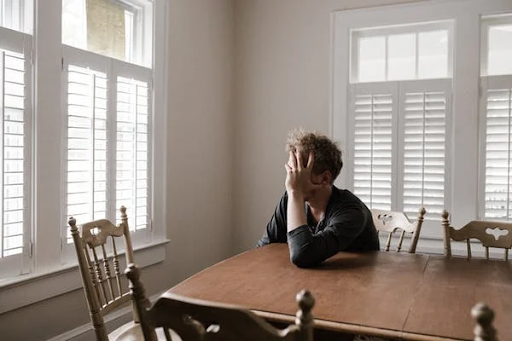Top 10 Reasons To Stop Worrying!
Worrying is something that everyone does from time to time. However, worrying too much can take a serious toll on your overall well-being. If you want to break the habit of worrying, here are some of the top 10 reasons why you should stop worrying.
1. Worrying is not productive
It's been proven by many studies that people who worry tend to have less energy and a lower quality of life. The more you worry, the more you are going to be exhausted and frustrated.
It also causes stress and anxiety, which can lead to physical problems such as headaches and fatigue. It can also affect your mental health by making it more difficult to sleep well or causing you to experience mood swings or depression. In addition, worrying may cause you to isolate yourself from others because they don’t want to be around someone who is always complaining or feeling anxious about everything that could go wrong in their lives.
2. You can't change the outcome of a situation with worry
Worrying is a natural part of being human, but it's also one of the worst things we can do to ourselves. The reason people worry so much is because they think it will help them somehow. They think worrying will solve their problems or prevent something from happening in the future. But this isn't true at all.
You can't change the outcome of a situation with worry. The only thing worrying does is make you feel bad about whatever it is you're worrying about — even if nothing bad happens at all! This feeling of dread and uneasiness can take over your life, preventing you from enjoying anything else while waiting for something bad to happen or trying to prevent it from happening in the first place.
3. Worrying is a waste of time and energy
Worrying takes up too much of your brainpower, and it doesn't actually improve your chances of success.
You know how sometimes you just can't stop worrying about something? It's like your mind is stuck in a loop, thinking over and over about the same thing. And even though you're not doing anything productive with all that mental energy, it feels like you're taking action, so it's hard to stop.
It is actually a waste of time and energy! You see, when we worry, our brains run through all the possible scenarios in our heads—and this actually affects how we behave in real life. So if we're worrying about something that hasn't happened yet, or that won't happen at all (like an unlikely worst-case scenario), then our brains are working overtime to imagine these things happening—but they're never going to happen! So by wasting all this mental energy on these imaginary scenarios, we aren't using our brains as efficiently as possible when we really need them.
4. Worrying doesn't change the past or future, but it can change the way you see the present moment
We all have moments where we feel like everything is falling apart around us. It's hard to focus on the things that matter when your mind is full of what-ifs and worst-case scenarios. But worrying about something that hasn't happened yet doesn't do anything to fix the problem, and worrying about what has already happened won't make it any less painful.
This is because when we worry about the past or future, we lose opportunities for joy in our lives today. Worrying makes us miserable and stressed out, which impacts our health and relationships with others.
We have no control over what has happened in the past or what may happen in the future; however, we do have control over how we choose to react to each situation that comes up in life. This means that when something bad happens, instead of worrying about it, try focusing your attention on something positive that will help take away some of your stress.
A famous Buddhist proverb says: “Worry never robs tomorrow of its sorrow; it only saps today of its joy.” This means that worrying doesn't make a problem go away—it just makes today less enjoyable. So if you want to stop worrying, remember this saying and put it into practice!
5. You have more control over your emotions than you think
When we're worried or stressed, it can feel like our emotions are out of our control. We might feel like we're being controlled by our emotions, and that they are somehow separate from us. But the truth is that our emotions are actually a part of us—they're just another aspect of our personality and character. That means that there is no such thing as “bad” or “good” emotions: they're all just different parts of who we are as people. You don't have to deal with them any differently than you would deal with any other aspect of your personality or character.
More importantly, though, when you think about how much control you have over your own feelings, it helps put things into perspective: if you can control how happy or sad you feel, then maybe what seems like an insurmountable obstacle right now will turn out to be not so bad after all. It also helps remind us that even if something terrible were to happen—like if we lost everything in a fire—we would still be able to survive because we know that we have more control over our emotions than we think. Knowing this fact will help us to stop ourselves when we are on the verge of worrying about useless things.
6. Worrying can be addictive and make you feel powerless over your own thoughts and actions
Worrying is a common and seemingly harmless activity that many of us partake in on a regular basis. In fact, it's estimated that about 50% of the population worries on a daily basis. But whether you realize it or not, worrying can be addictive and make you feel powerless over your own thoughts and actions.
The reason for this is because worry activates parts of the brain that are associated with reward, pleasure and motivation—the same parts that are activated by drugs like heroin and cocaine. This is why people who worry often find themselves unable to stop even when they know it's harmful to their health and well-being.
If you're one of those people who has been struggling with chronic worrying, it could be time to find other ways to cope with your stressors. The first step is admitting that there's a problem—and then following through with getting help from someone who can help guide you towards healthier ways of thinking about things so that you can live life without being held hostage by fear!
7. It's not your job to fix everything—you're not responsible for everything that happens in life!
You can't control what others do or what happens to them. You can only control yourself and your reactions. So if you find yourself worrying about something that doesn't have anything to do with you, try this: stop!
Let's say you're at work and a co-worker is having trouble with their project. It's not your responsibility to help them complete it, but it may be tempting to give advice or offer suggestions. However, if they don't want your help, just let it go! You'll only make matters worse by trying to “fix” things that aren't broken.
The same goes for family members, friends and other loved ones who might be facing difficult times in their lives—you may feel like their problems are somehow your problem too (especially if they've been open about them), but there will come a day when they'll need to deal with things on their own without any help from anyone else. So until then, just keep reminding yourself that you don't have control over other people's lives—just yours!
8. Your worries are only valid if they're based on reality, not just possibilities or assumptions about what could happen in the future
It's probably not a big surprise that there are many people who are worried about things that will never happen—and it's easy to see how this could be a problem. But there's also another type of worry that we should all be on guard for: worrying about things that are actually happening.
What does that mean? It means there are times when you have a legitimate reason to worry—but if you're worrying about something that isn't even true, then it doesn't make sense to get worked up over it. This is because worrying about something that is not real is a waste of your time and energy. If you worry about something that never happens, then you're just going to be exhausted and frustrated
9. Worrying does not help us to make better decisions
Worrying does not help us make better decisions in fact, it often makes us feel worse about the decisions we make and about ourselves. We are more likely to make better choices when we have clear goals and have considered our options carefully. When we worry excessively, however, we often jump to conclusions and fail to consider other possibilities or options.
We can also be more likely to procrastinate when we are feeling anxious or depressed — which means that worrying may lead us to put off important tasks until the last minute. Worrying is not a good way of preparing for something important or difficult (such as giving a presentation or going to a job interview). Instead, it saps our energy and makes us less effective at performing well under pressure.
The bottom line is that the best thing you can do for yourself is to stop worrying about things you cannot control. Instead, focus on the things that you can control; make a plan of action, and then work hard towards achieving your goals. Remember: your attitude and approach are what really matter in the end.
For more helpful and informative insights, visit here.





